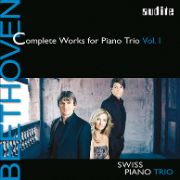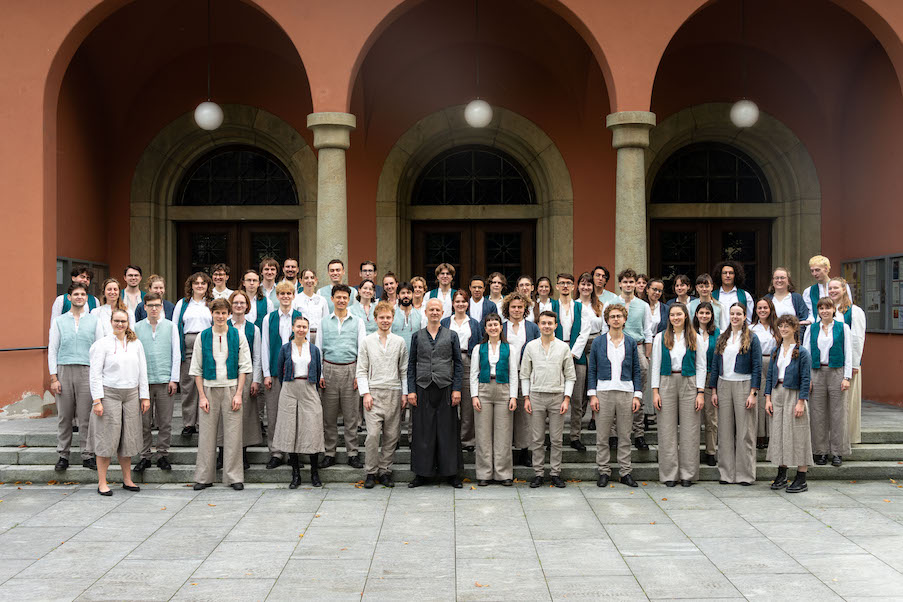Youth and maturity
The Swiss Piano Trio launches its recording of Beethoven's trios with the first and last.

The Swiss Piano Trio continue their impressive series of recordings, collecting literary summits as if the recording crisis were only for others. This time, it's nothing less than Beethoven's complete trios that they're working on, starting with the first (op. 1,1) and last (The Archduke op. 97), setting the scene for the genre in the composer who had a decisive influence on him.
The ensemble's qualities, which have won them so much praise, are once again evident: a very homogeneous interpretation, meticulous and respectful of the text. Their version of Op. 1 is fresh and without double-bottom, the tempi well found; here we meet the young Beethoven, full of new ideas and audacity, but we will look in vain for signs announcing the dramatic evolution of the titan.
The trio The Archdukewhose nickname is surprisingly nowhere to be found in the libretto, is far less convincing. The Beethoven of maturity is too smooth and too simple; this immense work is serene, of course, but this serenity does not appear here as the result of inner struggles and heartbreak overcome.
The Archduke is one of the most technically demanding trios in the entire literature, and it has to be said that all three musicians reach their limits here. Martin Lucas Staub is a respectable pianist, especially in the lyrical passages, but his impasto trills clearly weigh down the texture, which is fatal in this piece; Sébastien Singer struggles in the heights of the cello, and Angela Golubeva's tone too often lacks charm and persuasion.
A partly disappointing disc, then; we'll be waiting for the follow-up to this complete set, wishing the three of them more panache and the high-end quality corresponding to the obligation their name implies.
Ludwig van Beethoven: Complete Works for Piano Trio, Vol. 1 (Klaviertrio Nr. 1 Es-Dur op. 1/1, Klaviertrio Nr. 7 B-Dur op. 97). Swiss Piano Trio: Angela Golubeva, violin; Sébastien Singer, cello; Martin Lucas Staub, piano. Audite 97.692









